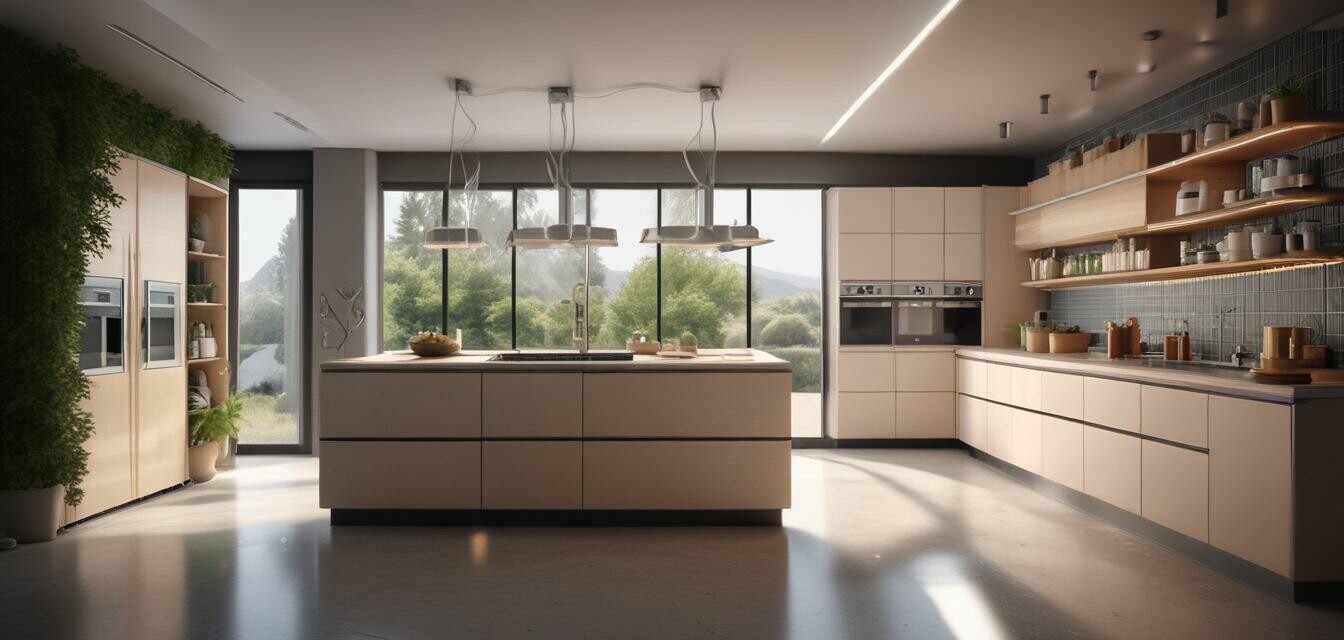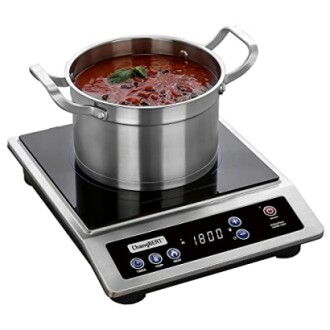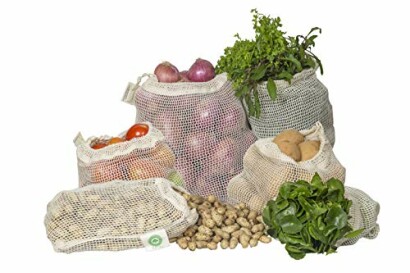
The Future of Sustainable Kitchen Appliances
Key Takeaways
- Increased demand for energy-efficient appliances in households.
- Greater use of eco-friendly materials like bamboo and recycled metals.
- Innovation in smart technology for appliance efficiency.
- Consumer preferences leaning towards brands with sustainability certifications.
- Growing popularity of reusable and compostable kitchen products.
As we look toward 2025, the demand for sustainable kitchen appliances continues to rise. With environmental concerns becoming a priority for consumers, innovations in energy-efficient and eco-friendly appliances are shaping the kitchen of the future. This article explores the anticipated advancements and evolving consumer preferences in sustainable kitchen technology.
Current Trends in Sustainable Kitchen Appliances
The shift towards sustainability in kitchen appliances reflects a broader trend in society aimed at minimizing carbon footprints and enhancing environmental responsibility. Here are some current trends:
- Utilization of renewable energy sources
- Integration of smart technology for better energy management
- Use of sustainable materials in appliance construction
- Modular appliances promoting repairability and longevity
Advancements to Expect by 2025
Here are some anticipated advancements in sustainable kitchen appliances by 2025:
- Increased Efficiency: Expect appliances to achieve even greater efficiency ratings. Many manufacturers are investing heavily in technology that maximizes energy use.
- Smart Appliances: The rise of smart kitchens will lead appliances to communicate with each other for optimized cooking and energy consumption.
- Eco-Friendly Materials: A trend toward using materials such as recycled plastics and bamboo for appliances will continue to grow.
- Innovative Water Use: Appliances that utilize water-saving technologies will become more prevalent, such as dishwashers with advanced sensors to optimize water consumption.
Understanding Consumer Preferences
Today's consumers are increasingly informed and motivated by the impact of their purchasing decisions. Factors influencing their preferences include:
- Brand transparency regarding environmental practices
- Long-term cost savings from energy-efficient products
- Certification and label recognition for sustainable products
- Design aesthetics that blend with modern kitchen décor
Featured Product Highlights
Induction Cooktop, Commercial Grade Portable Cooker
This powerful induction cooktop features 83% energy efficiency and a range of preset options for versatile cooking.
Learn MoreThe Role of Energy-Efficient Appliances in Sustainable Living
Energy-efficient appliances are at the forefront of reducing household energy consumption. By choosing appliances with high energy ratings, consumers can dramatically decrease their electricity bills and contribute to a greener planet. Some statistics to consider include:
| Appliance Type | Average Energy Savings (%) |
|---|---|
| Refrigerators | 40% |
| Washing Machines | 50% |
| Dishwashers | 20% |
| Induction Cooktops | 30% |
Popular Eco-Friendly Products
The shift towards sustainable kitchenware extends to eco-friendly products that complement energy-efficient appliances. Here is one essential product making waves:
Reusable Cotton Mesh Produce Bags
These 100% organic cotton mesh bags are durable and perfect for grocery shopping, reducing plastic waste significantly.
Learn MoreChallenges and Considerations for Manufacturers
As the demand for sustainable kitchen appliances increases, manufacturers face several challenges including:
- Balancing performance with sustainability
- Higher initial production costs for eco-friendly materials
- Consumer education about the benefits of sustainable features
The Future Outlook
As we approach 2025, the integration of eco-friendly technology into kitchen appliances will likely become standard rather than optional. Consumers will prioritize sustainability, and it is crucial for manufacturers to adapt accordingly.
Tips for Adopting Sustainable Kitchen Appliances
- Research and choose appliances with high energy efficiency ratings.
- Look for eco-friendly certifications when purchasing kitchenware.
- Consider multi-functional appliances to reduce clutter and consumption.
- Support brands that prioritize sustainable practices in their manufacturing processes.
Pros
- Reduced energy costs over time
- Minimized environmental impact
- Innovative technology improves ease of use
Cons
- Higher upfront costs for some sustainable appliances
- Limited options in certain categories compared to traditional appliances





